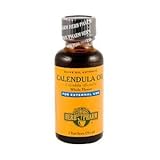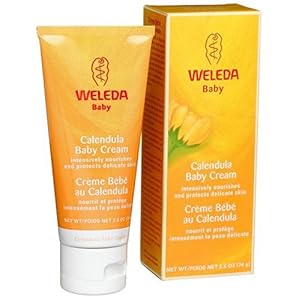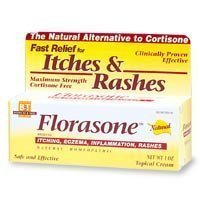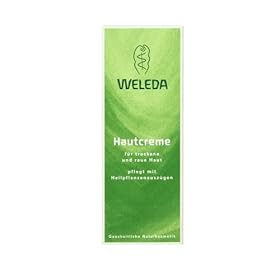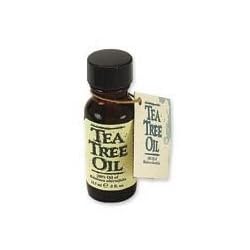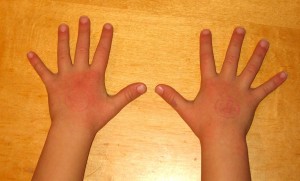
Supplementing babies and pregnant mothers with probiotics was shown to decrease eczema by 77%, according to a July 2014 study published in the official journal of the Japanese Society of Allergology (JSA).
After supplementing 130 pairs of mothers and newborns with probiotics in the final trimester of pregnancy and post-partum, the researchers concluded, “These data suggest that the prenatal and postnatal supplementation of bifidobacteria is effective in primary preventing [sic] allergic diseases.” There were 36 pairs in the control group who did not get supplemented.
The National Institutes of Health estimates that up to one-third of us have some sort of skin condition stemming from an allergic or hypersensitivity reaction, and it usually begins in infancy or childhood. According to the Asthma and Allergy Foundation of America, one in five Americans (50 million people) suffer from allergies, and allergies have been increasing in prevalence since the 1980s.
It makes me wonder: if allergies and hypersensitivities can arise from a lack of good bacteria in the digestive tract at birth, and there has been an increase in the prevalence of allergies, what has changed in our dietary patterns and food supply that is making us deficient in good bacteria?
This was the topic of my TED talk that I presented at TEDx Colorado Springs this past weekend. While I didn’t talk about this particular study, I did discuss how our food supply is riddled with hidden toxins that can cause us to become inflamed, and how inflammation leads to disease symptoms. (I’ll post the link to the talk when it is available!)
I also wonder if there is there any correlation between babies born by c-section and later issues with digestion and allergies, but the summary of this study did not include this information.


